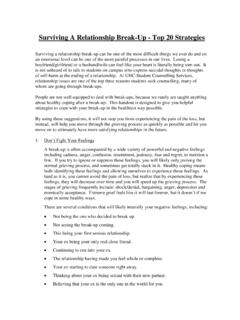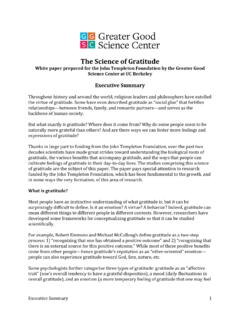Transcription of Lord of the Flies Novel Study Unit Plan - Hollins University
1 Lord of the Flies Novel Study unit plan Christopher Jordan Spring 2020 Objectives: The Student .. read a complete Novel critically as a scholar .. construct meaning from text and connect with literature .. define, explore, and comprehend the author s use of a variety of literary terms to advance the purpose and meaning of the Novel Lord of the Flies .. Build skills in literary analysis through reading Lord of the Flies and shorter complementary works .. identify key themes and their role in a Novel .. learn to work collaboratively, present information orally, and construct arguments individually and as part of a team .. write shorter and longer essays of literary analysis .. use the Novel Lord of the Flies to investigate human nature and relate the themes of the Novel to self and society Essential Questions Are humans inherently good or evil? How do people react to fear and stress?
2 Does power corrupt? Concepts Frailty of human nature Power and its application The influence of fear Savagery vs. order Rationality and Emotion Key Themes: Human Nature The Nature of Evil Civilization and Savagery Rationality and Fear Loss of Innocence Abuse of Power Fear Key Symbols: The conch The scar Fire The Beast The glasses Assessment Over the course of the entire novle unit , students will complete a variety of tasks that will provide the teacher with formative and summative assessment. Throughout the unit , the teacher will evaluate this assessment data and adjust instruction accordingly. The final assessment of the unit will be a literary analysis essay to fulfill the expectations of the county and address the Virginia Standard of Learning for 10th grade English. Students will be provided the essay topics (slightly adjusted to avoid spoilers) early in the unit process along with the rubric against which the essay will be measured.
3 Throughout the unit , interim assessments will be designed to build the skills necessary for students to successfully produce a high quality essay of literary analysis. OVERVIEW This two week unit represents the culminating two weeks of a nine week Novel unit . At Christiansburg High School in Montgomery County, the 10th grade English curriculum calls for class reading of at least one full length Novel that will form the basis for a student paper of literary analysis. In this classroom, we chose Lord of the Flies as our Novel . This unit plan will focus on the final two weeks of instruction, but I will provide an overview of the first seven weeks to demonstrate the background knowledge the students built to undergird their analysis, as much of the note-taking and skil-building required to compose the essay draws on work done in the first seven weeks of the unit .
4 I designed the unit as mastery based progression -- introducing or reinforcing knowledge of literary analytical skills in the first sections of the unit - laying the foundation of disciplinary skills on which later sections will build, culminating in an essay of literary analysis that employs the skills and knowledge introduced and reinforced throughout the unit to produce a polished essay demonstrating mastery of the skills of literary analysis. To ensure that all students possess the necessary background and skills to successfully produce a polished final product, the first sections are focused on introducing (or reinforcing) the needed disciplinary skills, understanding of literary terms, and the analytical skills required to conduct literary analysis. The next two sections of the unit focus on extending and applying these understandings in shorter written and graphic products.
5 The final section brings the skills and knowledge introduced and refined in the first seven weeks of the unit to bear in the production of a literary analysis essay. General Overall plan for Lord of the Flies Novel Study Throughout the Novel unit , students will complete vocabulary and grammar Study designed to build skills in English language. Vocabulary will introduce challenging words from the Novel . Grammar Study will be drawn from the school s English curriculum. Throughout the unit , I will monitor student progress and comprehension using a variety of formative and summative assessments, and I will use the data to adjust instruction to match the level of challenge and support to learner need. unit 1: Chapters 1-3 Content: Chapters 1-3 of Lord of the Flies Focus: Identify Characters, Setting, Symbolism, Theme, and Conflict in Lord of the Flies , understanding definitions and application of key literary terms, and making connections with the text.
6 Essential Questions: Who are the characters in this Novel ? What unusual situation do they find themselves in? What can we learn from their experience in this environment? Disciplinary Concepts/Key Terms: Characterization Symbolism Setting Conflict Theme Plot Main Lessons: Purposes for Reading Characterization Symbolism Culminating Assessment: Short Essay on Character analysis unit 2: Chapters 4-6 Content: Chapters 4-6 of Lord of the Flies Focus: Extending comprehension and application of literary analysis tools. Explore character development, recognize rising conflict and its role in the story, examine more themes. Essential Questions: How do people respond to adversity and challenge? How does fear shape our experince of the world? Is there a beast in each of us? Disciplinary Concepts/Key Terms: Characterization Symbolism Setting Conflict Theme Main Lessons: Allegory Conflict Theme Setting Culminating Assessment: Annotated Map unit 3: Chapters 7-9 Content: Chapters 7-9 of Lord of the Flies Focus: Deepen understanding of literary tools and their role in the text by exploring the characters development in relation to rising conflict and development of themes.
7 Extend analysis of symbols into analysis of Archetype. Essential Questions: How do humans overcome fear? What is the influence of others on our moral compass? Are people innately good or evil? How can symbols help us make sense of the world? Disciplinary Concepts/Key Terms: Characterization Symbolism Setting Conflict Theme Main Lessons: Archetype -- the ultimate symbol Character Analysis compare and contrast Theme Tragedy Culminating Assessment: Character Analysis unit 4: Chapters 10-12 Content: Chapters 10-12 of Lord of the Flies Focus: Apply the tools of literary analysis to synthesize information learned from reading a piece of literature to explore how the literary elements of character develompent, symbolism, and resolution of conflict advance the themes of Lord of the Flies in a formal literary essay. unit Objectives: In the final section of the Novel unit , we will wrap up our Study of the Novel and apply what we have learned to the production of a well-written essay of literary analysis.
8 Essential Questions: How do people react to stress and the absence of social constraints? What role do fear and power play in interpersonal relationships? How do the actions of others influence our own actions? What can we as readers learn about human nature from reading literature? Disciplinary Concepts/Key Terms: Characterization Symbolism Setting Conflict Theme Lessons: Text Structure and Climax Theme Socratic Seminar Novel summary Writing Workshop Culminating Assessment: Literary analysis paper (rubric) Focused on symbolism, character, theme Specific Lesson Progression for Introductory unit of Novel Study Lesson plan Introducing Lord of the Flies - Pre-Reading activities - unit 1, Lesson 1 Lesson Title Pre-Reading Activities for Lord of the Flies Grade Level English 10 Curricular Areas English Time 1 day - 35 minutes Materials/Resources Lord of the Flies Reading Notebook Collaborative Learning Roles Document Chromebooks Stranded Pre-Reading Activity Technology Used Student chromebooks Standard(s) of Learning The student will participate in, collaborate in, and report on small-group learning activities a) Assume responsibility for specific group tasks.
9 B) Collaborate in the preparation or summary of the group activity. c) Include all group members in oral presentation. d) Choose vocabulary, language, and tone appropriate to the topic, audience, and purpose. e) Demonstrate the ability to work effectively with diverse teams to accomplish a common goal. f) Collaborate with others to exchange ideas, develop new understandings, make decisions, and solve problems. g) Access, critically evaluate, and use information accurately to solve problems. h) Evaluate one s own role in preparation and delivery of oral reports. i) Use a variety of strategies to listen actively. j) Analyze and interpret other s presentations. k) Evaluate effectiveness of group process in preparation and delivery of oral reports. The student will read, comprehend, and analyze literary texts of different cultures and eras. a) Identify main and supporting ideas.
10 B) Make predictions, draw inferences, and connect prior knowledge to support reading comprehension. c) Explain similarities and differences of techniques and literary forms represented in the literature of different cultures and eras. d) Analyze the cultural or social function of literature. e) Identify universal themes prevalent in the literature of different cultures. f) Examine a literary selection from several critical perspectives. g) Explain the influence of historical context on the form, style, and point of view of a literary text. h) Evaluate how an author s specific word choices, syntax, tone, and voice shape the intended meaning of the text, achieve specific effects and support the author s purpose. i) Compare and contrast literature from different cultures and eras. j) Distinguish between a critique and a summary.




